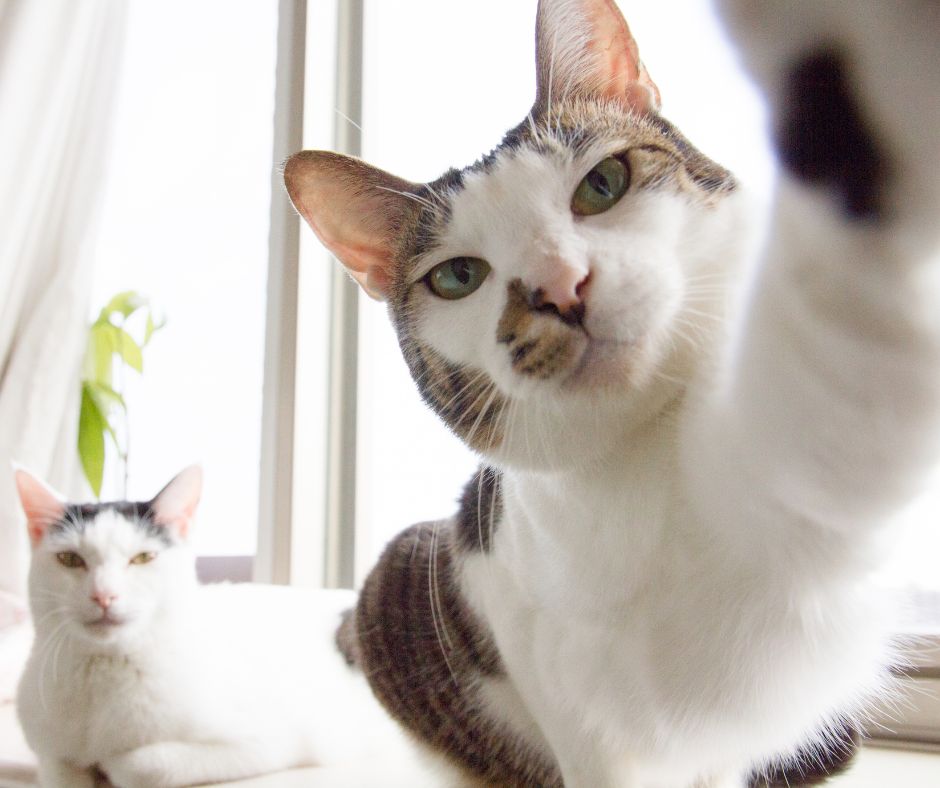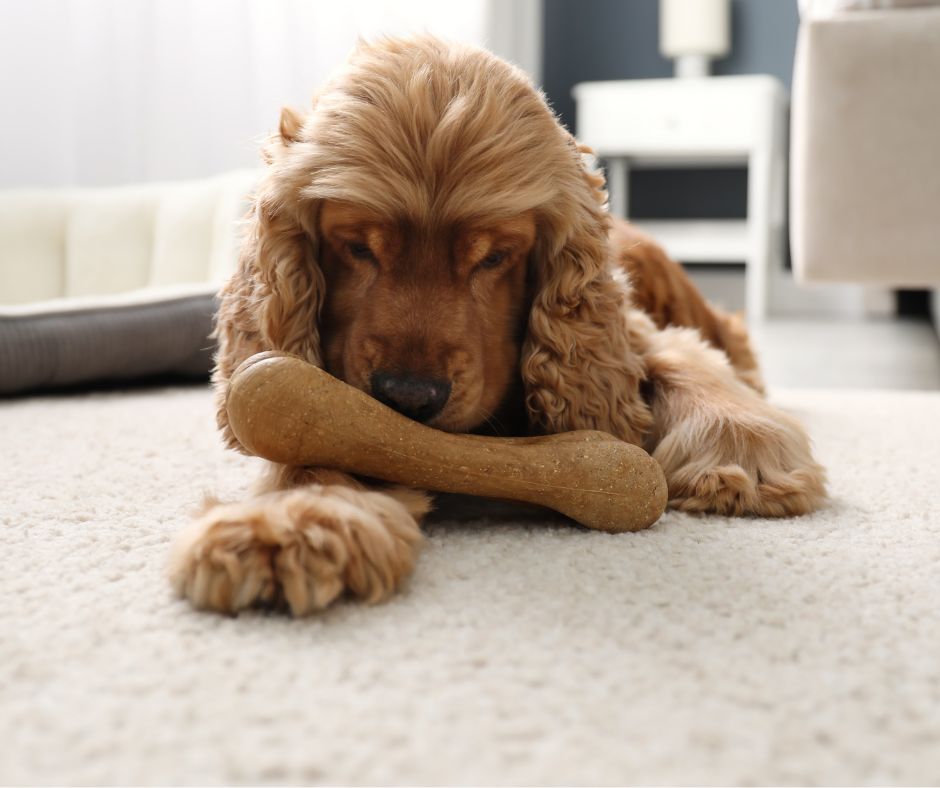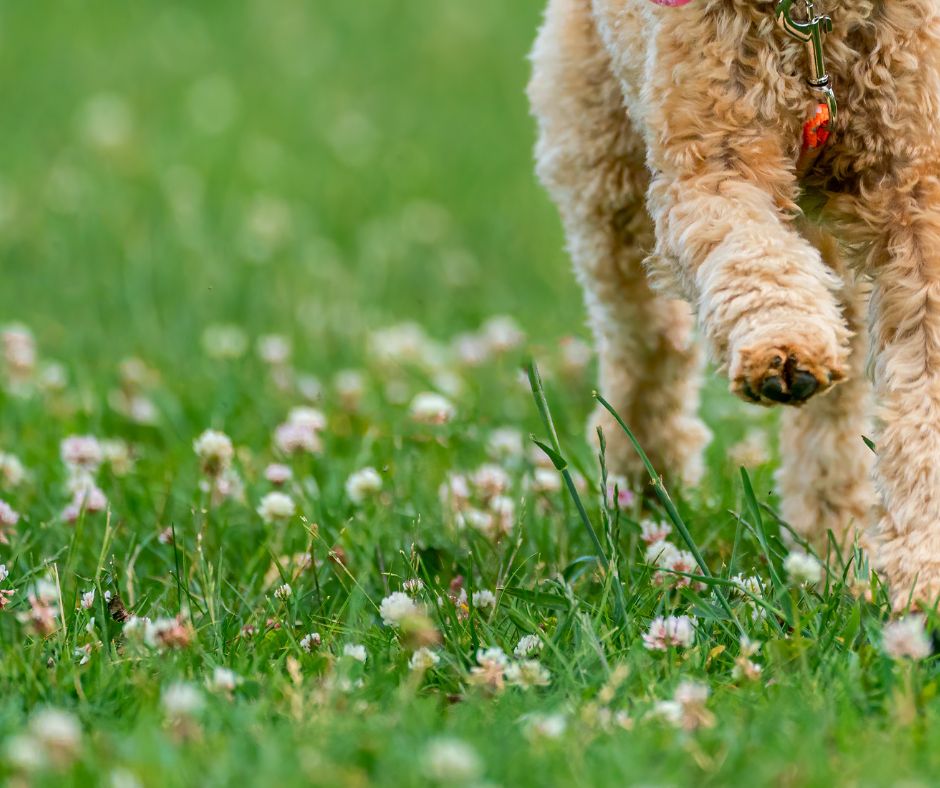- Home
- Home Remedies
- Borax For Fleas
Does Borax For Fleas Actually Work?
How Safe Is It?
Have you heard you can use borax for fleas? We found this natural method very helpful in eliminating our flea problem. Not many people have heard of using borax to kill fleas, so it felt like we were using a secret weapon.
What is Borax Exactly?
It is a white powder, commonly used as a household cleaner. I discovered 20 Mule Team Borax when my children were young and I bought some at the local grocery store to use as a laundry booster.
I would just add some in with the laundry detergent and it seemed to help everything come out brighter and fresher.
When we got fleas, I was surprised to learn that this same product in my laundry room could be used effectively as a natural treatment for getting rid of them!
Boron, Borax, and Boric Acid
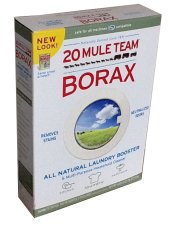 You Can Use 20 Mule Team Borax For Fleas
You Can Use 20 Mule Team Borax For FleasIt's important not to confuse borax powder, also called sodium borate, with boric acid. They both contain the same chemical element, boron.
Many people use these words interchangeably, but they are different.
Borax, or sodium borate, is a combination of boron, sodium, and oxygen.
Borax is found and extracted from natural locations like dry river beds. Borax powder is used as a common household cleaner and laundry additive.
Boric acid is also a fine white powder but is commonly used in pest control. Boric acid is borax that has been processed and refined. It is composed of hydrogen, boron and oxygen.
According to The Chemical Company, boric acid may be prepared by reacting borax (sodium tetraborate decahydrate) with a mineral acid, such as hydrochloric acid. Boric acid is used as a pesticide and is considered poisonous. [1]
"Do borax and boric acid kill fleas?"
These powders work by being ingested by insects and animals that groom themselves after coming in contact with it.
This includes rodents and insects who self-groom such as ants, cockroaches and termites.
Adult fleas feast on the blood of their hosts, so boric acid won't be particularly effective against them.
However, larvae (which are accustomed to eating flea dirt, or flea excrement) might eat it if they come in contact with it so it may work to some extent.
Both boric acid in it's powder form and borax powder contain boron. Boric acid, as a pesticide and insecticide, works by being ingested and poisoning the stomach and damaging the nervous system.
Borax is a desiccant, which means it dries out, or dehydrates insects. Both can cause issues if ingested or inhaled, so we'll review how to use borax for fleas safely further down.
According to medlineplus.gov, boric acid is a dangerous poison. [2] Since 20 Mule Team Borax is readily available and has low toxicity, we'll talk about using borax for fleas.
Side note: diatomaceous earth is yet another useful white powder for killing fleas! We'll discuss this effective method in another upcoming article.
This fine powder is safe and effective, but very different from borax powder. Interestingly, it can be used safely in more places so it's a good choice for households with small children.
Definitely a good idea to add to your arsenal of natural remedies for whole house flea treatment.
How To Use Borax For Fleas:
When you have fleas, it seems like they are everywhere in the house. And they pretty much are. Adult fleas like to lay their eggs on pets, and the eggs fall off pet's fur when they walk around.
Then as the eggs become larvae, they will wriggle, wiggle and burrow toward dark corners and crevices, to pupate and emerge as adults. So the use of borax to kill fleas in the house should be restricted to these areas:
Areas to Target:
- The cracks and crevices where hard floors meet the wall or woodwork
- Any spaces or gaps between the slats or planks in hardwood floors
- Under low clearance furniture like bookcases and entertainment centers
- Under upholstered furniture
- Under throw rugs and area rugs and carpets
- In the creases and under the cushions of upholstered furniture
- In your vacuum cleaner bag, being careful not to breathe it in
Step 1:
Wearing gloves and a face mask, gently sprinkle the powder in these areas. In hard places use a broom or stiff brush to sweep the borax powder into the cracks and crevices.
In the upholstered or carpeted areas, use a broom or bristle brush to work it into the fabric or fibers.
Step 2:
Leave sprinkled borax for 6 to 48 hours, ensuring no pets or children come in contact with it during that time. Some people do this overnight.
Step 3:
Then vacuum the area as thoroughly as possible. Use a hose attachment to get into those cracks.
Vacuuming stimulates flea pupae to hatch and it kills fleas, so it's essential to dispose of the vacuum bag or vacuum canister contents outside of the house immediately.

"How Well Does Borax Kill Fleas?"
Borax is a desiccant, which means it may kill flea larvae, flea eggs and adult fleas by absorbing moisture and drying out, or dehydrating them.
It does not kill them on contact, but works slowly so it requires patience and repeated treatments.
Since fleas are not known to groom themselves, and since the borax needs to be ingested, it may only be somewhat effective at best – and likely only with the larvae that are scavenging and feeding on flea excrement and therefore may consume some of the borax.
Questions About Using Borax For Fleas:
“How do I know if I have pure borax?”
20 Mule Team Borax is pure borax, just how it's found in nature. There are natural flea products on the market that are composed of a mixture of ingredients. The popular Fleabusters comes to mind.
If this interests you, buying a premixed flea killing powder with safety instructions and precautions is always a wise choice.
Speaking of Safety Precautions:
We tend to think of natural as safe. But just because using borax for fleas is a natural method, that doesn't necessarily mean it's safe. There are plenty of dangerous substances in nature.
Even though borax has low toxicity in humans, there are some risks to be aware of.
According to WebMD, borax can cause skin irritation as well as irritation to eyes, nose, throat and lungs if you breathe it in.
Ingestion can lead to nausea, vomiting and diarrhea, and ingesting large amounts can cause shock and kidney failure. Overexposure can lead to headache, tremors, dizziness, passing out and more. [3]
So, do not use a large amount of borax, do not dump a large amount in a wide sweeping motion like you might with carpet powder, do not breathe it in, and follow safety precautions.
It's advised that pet owners make sure the area is well ventilated, wear gloves and a face mask when using borax. Change and wash clothing after use and wash any skin that comes in direct contact with it right away, as well as washing up after application.
Make sure pets and young children do not come into contact with borax. Never use it directly on a pet, or their bedding. Also, avoid using borax on areas such as furniture and beds where people and pets frequent.
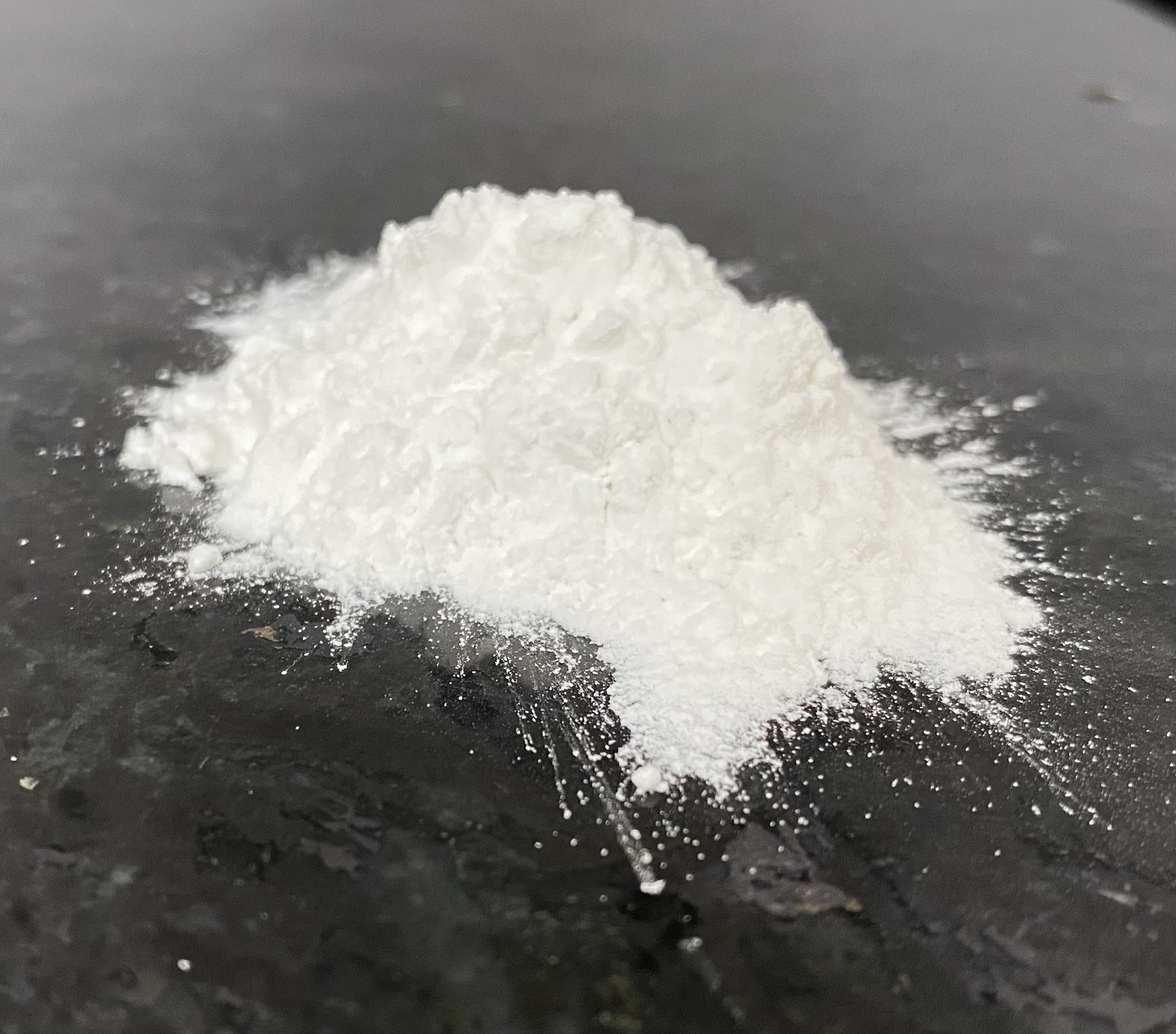 Use borax for fleas with caution
Use borax for fleas with caution"Is Borax Safe For Dogs?"
Borax can be used in homes with dogs as long as they don't come in contact with it.
Never use it directly on your dog, or on their pet bedding or any areas where they can walk or lay on it.
Keep them away from the treated areas until thoroughly vacuumed.
"Is Borax Safe For Cats?"
Cats can get into smaller places and are prone to washing themselves, so in addition to making sure never to use it on them or their bedding, take special precaution that they can't track it on their paws or come into any contact with it. If they do, call your vet immediately.
"Is Borax Safe Around Small Children?"
For the safety reasons above, it's not recommended for use in households with kids. It shouldn't come in contact with young children or even pets.
If you have kids and pets in the house, consider a safer powder like food-grade diatomaceous earth which is used in exactly the same manner but with no toxic or harmful effects.
Due to safety concerns, we chose to use borax only in small amounts in the crevices where the moulding meets the hardwood floors around the perimeter of rooms, as well as in the cracks between the boards of some separated floorboards. We definitely noticed improvement.
"How Well Does Borax Kill Fleas?"
Giving your home the borax treatment is definitely useful, especially when you don't have pets or children but do have fleas in the house.
It works slowly – so you may notice fewer fleas over time. It's effectiveness depends on vacuuming and using other methods like regular pet baths at the same time.
"Does Borax Kill Fleas In All Stages of the Flea Life Cycle?"
While it may do a good job of killing flea larvae by drying them out, flea eggs and adult fleas won't ingest it so it's effectiveness is questionable.
There are conflicting reports from pet owners who have used borax for fleas. Additionally, flea pupae are virtually indestructible, locked in their tank-like cocoon.
Vacuuming them will be your best bet, but having borax or other powder such as table salt or diametreous earth in place when they hatch will help kill them too.
A Bit About The Flea Life Cycle:
The Pupae Stage:
In it's cocoon, flea pupae remain safe and protected from flea killers. If it was affected by a growth inhibitor before pupating, it won't hatch into an adult flea.
The pupal stage lasts for a week to ten days in normal conditions, meaning the temperature and humidity are right, and there are food sources (pets and people, which they can sense the vibrations of) present.
Adult Stage:
Adult fleas live around a week, or more on longhaired pets. As soon as a female flea emerges from the pupae she looks for a meal and mates shortly after. She will begin laying eggs two days later and lay up to 50 eggs per day.
Flea Egg Stage:
The eggs aren't sticky, and fall off their host onto pet bedding, furniture, beds, carpets, grass, etc. They hatch into larvae between a few days and weeks later.
Larval Stage:
The larvae are about 1/4 inch long, and actively moving. They wriggle into the nearest dark place, feed on flea dirt (which is flea feces), and as they are feeding and hiding they spin the pupal cocoon.
Flea larvae (as well as adults and eggs) are susceptible to flea killing products. Using sprays and powders like borax for fleas in their hiding places before they pupate, while they are hiding and feeding, is a very effective method of natural flea control.
"Is Using Borax For Fleas all I need to do?"
Fighting flea infestations takes quite a bit of work! Simply using a flea powder or borax for fleas won't be enough.
For best results you will also want to be giving your pet flea baths with either a good flea shampoo or just dawn dish soap, as well as daily use of a flea comb both in and out of the bath.
Also, vacuuming daily is critical, as well as frequent washing and heat drying of pet bedding, human bedding, blankets, throw rugs, decorative pillows and pillow covers etc.
If you can and want to treat your pet with a topical flea treatment, that will quickly make a big difference. Other products such as flea collars, flea spray (store-bought or homemade), and even flea traps are important for fighting flea infestations.
Takeaway - Should I Use Borax For Fleas?
If we had another flea infestation, I wouldn't.
Now that I know about food-grade diametreous earth (DE) and now that there are great natural flea powders on the market like Fleabusters - made by professionals, for the purpose of killing fleas, properly pre-mixed, and come with instructions, I would choose one of those natural options.
Even though we felt that we had success using borax for fleas, it could have been largely due to the stepped-up vacuuming efforts in those areas where we had placed it.
Also, it most likely only affected the larvae. In the future, I'd choose a safer, more effective option.
References:
Borax - The Chemical Company. (n.d.). The Chemical Company. Retrieved February 16, 2022, from https://thechemco.com/chemical/borax/#:~:text=Borax%20occurs%20naturally%20in%20evaporated,repeated%20evaporation%20of%20seasonal%20lakes.&text=Tibet%20and%20Romania.-,Borax%20can%20also%20be%20produced%20synthetically%20from%20other%20boron%20compounds,decahydrate%2C%20is%20not%20acutely%20toxic.
Boric acid poisoning: MedlinePlus Medical Encyclopedia. (n.d.). MedlinePlus. Retrieved February 16, 2022, from https://medlineplus.gov/ency/article/002485.htm#:~:text=Boric%20acid%20is%20a%20dangerous,products%20that%20contain%20the%20chemical.
Borax (Sodium Tetraborate): Uses & Health Risks. (n.d.). WebMD. Retrieved February 16, 2022, from https://www.webmd.com/a-to-z-guides/borax-sodium-tetraborate#:~:text=The%20best%2Dknown%20use%20for,Paint%20and%20ceramic%20glaze


